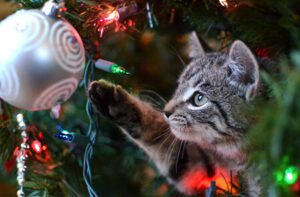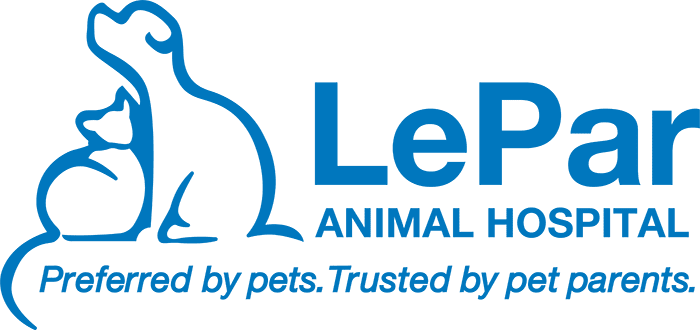Holiday Hazards
 While the holiday season is wrapping up there are a few common household holiday items that can prove toxic to your pet. This time of year we seem to see more toxicities than other times of the year. I would like to take a few moments to go over a few common toxins, what to do should your pet be exposed, and how to prevent toxin exposure.
While the holiday season is wrapping up there are a few common household holiday items that can prove toxic to your pet. This time of year we seem to see more toxicities than other times of the year. I would like to take a few moments to go over a few common toxins, what to do should your pet be exposed, and how to prevent toxin exposure.
Around the holiday season risk factors for toxin exposure increase. Here are a few common holiday items that are toxic to our furry friend:
- Alcohol: Beer, wine, and spirits can all be highly toxic.
- Chocolate: Baker’s, semi-sweet, dark chocolate, and milk chocolate
- Coffee: Covered espresso beans, coffee grounds, and beans
- Moldy or spoiled food
- Onions or onion powder
- Salt
- Fatty foods
- Yeast dough
Plants make a great gift, but several common holiday flowers can be dangerous.
Lilies that may be found in holiday flower arrangements could be deadly to cats, Man types of lily including: Tiger lily, Asian, Japanese show, Easter, stargazer, and the Casa Blanca lily will cause renal failure in cats.
Poinsettas are generally overstated in their toxicity, but if ingested will cause irritation to the mouth and stomach, leading to nausea and vomiting.
Holly ingestion can cause nausea and vomiting
Mistletoe carries the risk of significant cardiovascular issues and GI upset.
While we are beginning the process of taking down most decorations, we still need to exercise caution around our pets.
Christmas tree water may contain fertilizers and if ingested can cause GI upset. Stagnant water also serves as a breeding ground for bacteria.
Electric cords can be chewed causing electrocution.
Ribbons and tinsel are common causes of intestinal obstructions in dogs and cats during the holiday season.
Batteries contain corrosive substances that can cause chemical burns, GI upset, or even intestinal obstruction.
Potpourris smell great simmering on the stove top but pose oral, dermal, or ocular damage. Dry potpourri does not post the same risks, but can lead to toxin exposure.
Always Be Prepared!
If your pet ingests a toxic or potentially toxic substance despite your best efforts to prevent it have a plan. Please have phone numbers for your veterinarian, local emergency clinic, and the ASPCA animal poison control hotline (1-888-4 ANI HELP) in a convenient location, or even saved in your smart phone. If you think your pet ingested something poisonous, seek help immediately
Recent Posts
About Us
LePar Animal Hospital has served generations of pets and families in Evergreen Park, Oak Lawn, Palos, and neighboring suburbs, and we hope to serve generations more! Our animal hospital is accredited by the American Animal Hospital Association (AAHA) and staffed with Fear Free Certified veterinarians providing a multitude of services, from wellness and dental care to acupuncture, chemotherapy, and surgery.
